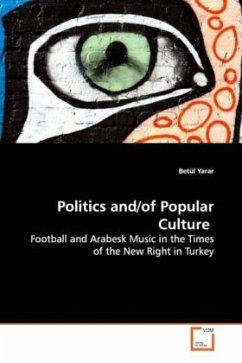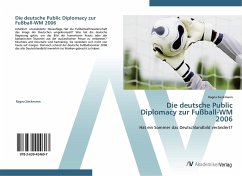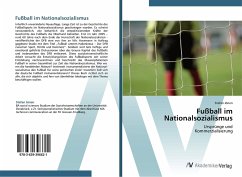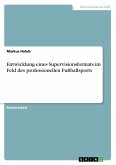It is generally acknowleged that the 1980s
was a turning point in the history of modern Turkey.
Marked by the rise of the New Right, it was also the
period when popular cultural forms like football and
arabesk were transformed. Although there has been an
increasing sociological interest in the issue of
social transformation in Turkey in the 1980s, most
studies have been conducted from a perspective
focusing on its economic and political aspects.
Contrary to this large literature on Turkey, this
book aims to analyse this important transformation
period from an angle focusing on the issue of
the relationship between politics (i.e. the New
Right) and popular culture (i.e. football and
arabesk music). With its theoretical framework based
on the works of Gramsci and Foucault along with many
other scholars, this book should help to shed some
light on some of important theoretical and practical
issues that concerns those who are working on the
issue of politics of popular culture. It should also
be specially useful to those who are interested in
socio-historical analysis of sport/football and
music/arabesk in Turkey.
was a turning point in the history of modern Turkey.
Marked by the rise of the New Right, it was also the
period when popular cultural forms like football and
arabesk were transformed. Although there has been an
increasing sociological interest in the issue of
social transformation in Turkey in the 1980s, most
studies have been conducted from a perspective
focusing on its economic and political aspects.
Contrary to this large literature on Turkey, this
book aims to analyse this important transformation
period from an angle focusing on the issue of
the relationship between politics (i.e. the New
Right) and popular culture (i.e. football and
arabesk music). With its theoretical framework based
on the works of Gramsci and Foucault along with many
other scholars, this book should help to shed some
light on some of important theoretical and practical
issues that concerns those who are working on the
issue of politics of popular culture. It should also
be specially useful to those who are interested in
socio-historical analysis of sport/football and
music/arabesk in Turkey.








